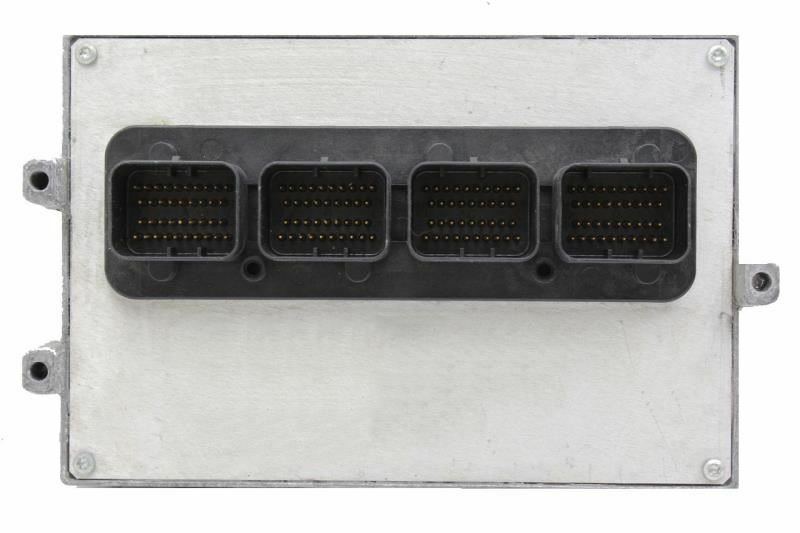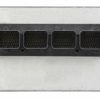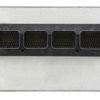Is Your 2012 Dodge 1500 Running Rough? The ECM Might Be the Culprit.
The Engine Control Module (ECM) is the electronic brain of your 2012 Dodge 1500’s 4.7L engine. It manages everything from fuel injection and ignition timing to transmission shift points and emissions controls. When this critical component begins to fail, it can cause a wide range of frustrating and often intermittent problems that can be difficult to diagnose. If your truck is stalling, misfiring, or simply won’t start, a faulty ECM is a likely cause.
From the Diagnostic Bay
We had a 2012 Dodge 1500 with the 4.7L V8 come into the shop with a complaint of intermittent stalling at stoplights. The check engine light was on, but the codes were all over the place—random misfires, O2 sensor faults, and even a transmission communication error. The owner had already replaced the spark plugs, coils, and a couple of sensors with no luck. After verifying all power and ground connections to the module were solid, we connected a scope and saw the 5-volt reference signal dropping out intermittently. This pointed directly to an internal failure in the original ECM. Installing a correctly programmed replacement module like this one solved all the issues instantly. The truck ran smoothly, all the codes cleared, and the customer was back on the road without a single stall.
Common Symptoms of a Failing 2012 Dodge 1500 ECM
- ✔ Check Engine Light: The most common symptom, often with codes related to module communication (e.g., U-codes), sensor circuits, or random misfires.
- ✔ Engine Stalling: Your truck may stall unexpectedly while driving or when coming to a stop.
- ✔ No-Start Condition: The engine may crank but refuse to start, indicating a lack of spark or fuel delivery commanded by the ECM.
- ✔ Poor Engine Performance: Noticeable loss of power, hesitation during acceleration, and rough idling.
- ✔ Reduced Fuel Economy: An inefficiently running engine, managed by a faulty ECM, will consume more fuel than usual.
- ✔ Erratic Transmission Shifting: The ECM works with the transmission controller; a failing module can cause harsh or delayed shifts.
- ✔ Communication Failure: A diagnostic scan tool may be unable to communicate with the engine computer.
The Simple, Reliable Solution: A Plug & Play ECM
Don’t let a faulty engine computer keep your truck off the road. This replacement Engine Control Module is the perfect solution for your 2012 Dodge 1500. We take all the guesswork and hassle out of the repair. Simply provide us with your vehicle’s VIN and current mileage during checkout, and we will program the unit specifically for your truck. When it arrives, the installation is straightforward—disconnect the battery, swap the modules, and reconnect the battery. No expensive trips to the dealership for programming are required. This is a true Plug & Play solution designed to get you back on the road quickly and affordably.
This module is a direct replacement for a wide range of part numbers, ensuring compatibility and proper function for your vehicle. It is built to meet or exceed original equipment specifications for reliability and performance.
Frequently Asked Questions
Is this ECM really “Plug and Play”?
Yes. We pre-program the module using the VIN you provide. This ensures it has the correct software and security information for your specific vehicle, allowing it to work immediately after installation without any additional programming.
How do I find my truck’s VIN?
Your 17-digit Vehicle Identification Number (VIN) can be found on your vehicle’s registration, your insurance card, or on a metal plate on the driver’s side of the dashboard, visible through the windshield.
Will this fix my check engine light?
If the check engine light is caused by a faulty ECM, this replacement part will resolve the issue. After installation, it’s a good practice to clear any stored codes with a basic OBD-II scanner. If the light returns, there may be other underlying mechanical or sensor issues that need to be addressed.
Do I need to perform any special “relearn” procedures?
No special procedures are typically required. Once installed, the module will learn and adapt to your vehicle’s parameters as you drive. The most important step is ensuring your battery is disconnected during the swap to reset the vehicle’s electrical system.
What causes an ECM to fail?
ECM failure can be caused by several factors, including voltage overloads from jump-starts or bad alternators, excessive heat, moisture intrusion, or simply age and vibration causing internal solder joints to fail.


